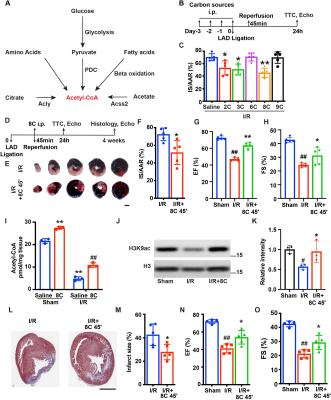
March 14, 2022 – A medium-chain fatty acid found in energy drinks might one day help protect against heart attack injuries.
“Heart attacks are still a leading cause of death worldwide, that often come with devastating complications,” said Zhong Wang, Ph.D., an associate professor of cardiac surgery at the University of Michigan Frankel Cardiovascular Center, who is the senior author on a recent preclinical study in eLife. “Better options are needed to reduce injury to the heart after a heart attack, and even improve heart function. In this publication, we target the interplay between energy metabolism and epigenetics mediated by the medium chain fatty acid 8C.”
Wang and colleagues were able to protect against heart attack injury in rat models with octanoic acid, an eight carbon (8C) medium chain fatty acid, as well as a few other metabolites. Those fatty acids produced acetyl-CoA, a building block for energy metabolism, which a stressed heart desperately needs.
The idea is that a physician would administer this therapy to a person once they arrive at the hospital after having a heart attack, to reduce further injury and improve heart function during recovery, he says.
“Understanding the crosstalk between energy metabolism and epigenetics may not only provide an effective target for myocardial infarction, but also have broad implications in other ischemic injury-caused organ damage beyond cardiac diseases,” said Ienglam Lei, Ph.D., from the Frankel CVC’s Department of Cardiac Surgery and the University of Macau in China, who conducted the study’s key experiments.
Wang says the next step would be to test this molecule in large animal models, followed by clinical trials. The research team has been studying the epigenetic regulation of heart attack for more than 10 years.
For more information:


 February 03, 2026
February 03, 2026 









